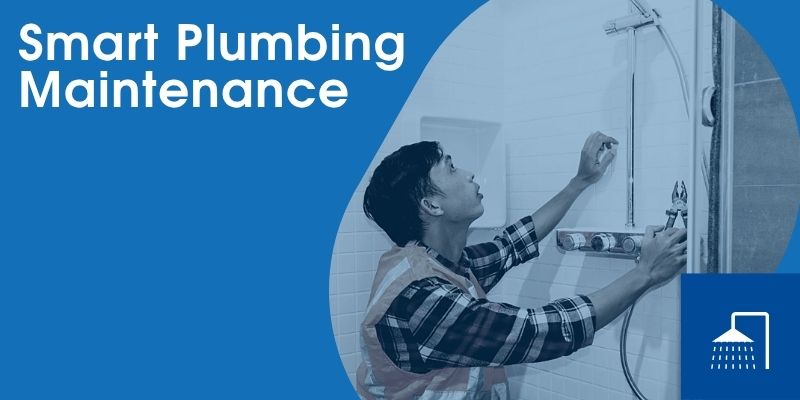Introduction: Smart Plumbing Maintenance
Living in Dallas comes with its own set of challenges when it comes to home plumbing. The combination of seasonal temperature swings and older plumbing systems in many neighborhoods makes regular maintenance more important than ever. Taking a few proactive steps now can help you avoid expensive repairs later. Whether you’re a new homeowner or a long-time resident, these simple habits will help keep your plumbing system running smoothly all year round.
Table of Contents
Check for Common Household Leaks
Leaks are often small and quiet—but they can lead to major water damage if left unchecked.
Under the Sink
Kitchen and bathroom sinks are frequent leak spots. Check the area under your sinks for signs of dripping, pooling, or dampness, especially around pipe joints and seals.
Around the Toilet
Toilets can develop hidden leaks at the base or where the water line connects. Look for water stains or a musty smell behind or beneath your toilet.
Appliances
Washing machines, dishwashers, and refrigerators that use water can leak slowly over time. Periodically check behind these appliances for damp spots or moldy odors.
Monitor Water Usage
If your water bill suddenly goes up and you can’t explain why, you might have a hidden leak. A plumber can help detect leaks you can’t see.
Annual Water Heater Maintenance
A water heater needs a little care each year to keep performing well.
Flush to Remove Sediment
Minerals in hard water—like calcium and magnesium—settle in your tank. Flushing it once a year clears this sediment out and keeps the system working efficiently.
Boost Energy Efficiency
When there’s less buildup inside, your heater doesn’t have to work as hard, which saves energy and shortens the time it takes to heat water.
Extend Its Lifespan
Sediment can lead to rust and corrosion inside your tank. Flushing reduces wear and tear, potentially adding years to your water heater’s life.
Improve Water Quality
Cloudy or discolored hot water is often caused by sediment buildup. Keeping the tank clean helps maintain water clarity and quality.
Install Drain Screens in Kitchens and Bathrooms
Drain screens are a low-cost way to avoid annoying and costly clogs.
In the Kitchen
Screens placed in the sink catch food scraps, coffee grounds, and grease before they slip down the drain and cause blockages.
In the Bathroom
Hair is a leading cause of clogs in showers, tubs, and bathroom sinks. A simple mesh drain cover can prevent hair from building up in your pipes.
Fewer Chemicals, Fewer Problems
When less debris goes down your drains, you won’t need to use harsh chemical cleaners. This is better for your plumbing and the environment.
Easy to Clean and Replace
Drain screens are widely available, affordable, and simple to maintain. Just rinse them off or replace them when needed.
Skip the Harsh Chemical Cleaners
Using chemical drain openers might seem like a quick fix, but they can do more harm than good.
Damage to Pipes
Most chemical cleaners contain corrosive substances that can eat away at pipes, especially in older homes or those with PVC piping.
Health Hazards
These cleaners give off toxic fumes that can irritate your skin, lungs, and eyes. It’s especially dangerous in bathrooms with limited ventilation.
Temporary Solution at Best
They might clear a clog near the surface, but deeper blockages usually return. It’s better to use a plunger, plumber’s snake, or call in a professional.
Environmental Risks
Once flushed, the chemicals can enter the water system and cause harm to the environment. Use eco-friendly methods whenever possible.
Learn How to Shut Off Your Water Supply
Knowing how to shut off the main water valve can save you from a major disaster.
Act Quickly in Emergencies
If a pipe bursts or there’s a major leak, shutting off the water immediately can minimize damage and save thousands in repair costs.
Makes Plumbing Work Safer
Turning off the water is essential for doing safe repairs—whether it’s a DIY job or done by a licensed plumber.
Important Before Travel
Before you go on vacation, it’s smart to shut off the main water valve. This prevents leaks or floods while you’re away from home.
Where to Find It
The shut-off valve is usually near the foundation of your house or close to the water meter. If you’re not sure where it is, ask a plumber during your next visit.
Conclusion
Maintaining your plumbing system doesn’t require expert knowledge—just a little routine care and attention. By checking for leaks, flushing your water heater, using drain screens, and avoiding chemical cleaners, you’ll reduce your chances of dealing with a plumbing disaster. And knowing how to turn off your water quickly can prevent major damage during emergencies. When in doubt, don’t hesitate to reach out to a qualified plumbing repair specialist in Dallas County. A small fix today could save you from a major headache tomorrow.










